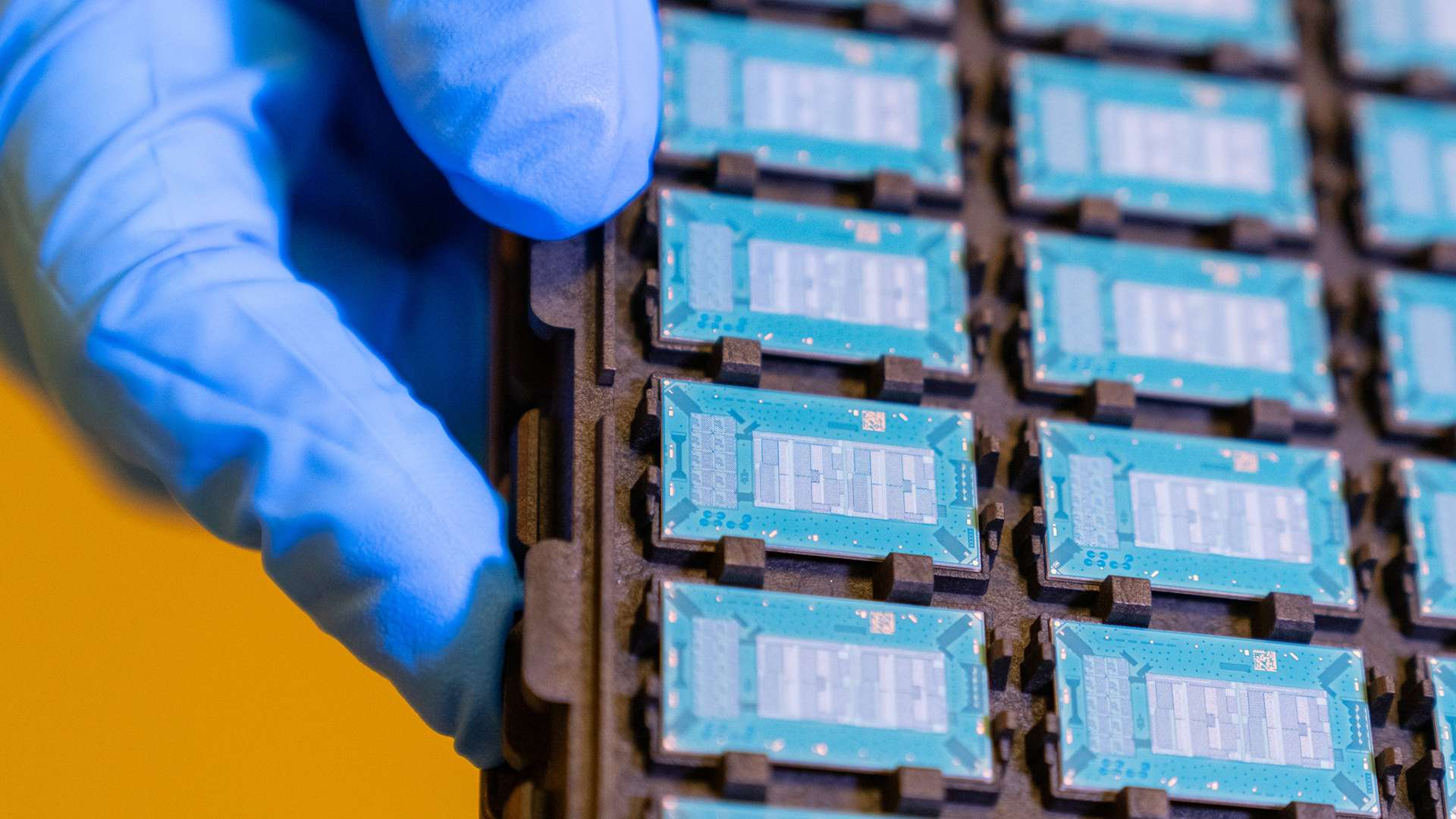 INFRA
INFRA
 INFRA
INFRA
 INFRA
INFRA
Intel Corp. today launched its standalone FPGA business, which will sell reconfigurable chips for systems ranging from cell towers to robots.
The business traces its roots to a chipmaker called Altera Corp. that was founded in 1983. Intel bought the company for $16.7 billion in 2015 and later merged it into its data center division. Last year, it announced plans to spin Altera out of the data center division into a standalone business.
The transistors in a processor are organized into modules that each perform a different set of tasks. One module might be optimized to carry out matrix multiplications, the mathematical calculations that machine learning models use to process data. The neighboring cluster of transistors, in turn, may focus on encrypting network traffic.
Most processors don’t allow users to change which cluster of transistors performs what task and how. Intel’s newly independent Altera unit sells specialized chips called FPGAs, or field programmable gate arrays, that do support customization. Companies can adjust an FGPA’s design to increase the speed at which it runs a target workload or reduce power usage.
A hardware team building an AI-powered smart home appliance, for example, could optimize most of the circuits in an FPGA to perform matrix multiplications. The more AI-optimized circuits a processor has, the faster it can run machine learning models. FGPAs provide the ability to customize not only their onboard compute modules but also the interconnects that manage the flow of data between those modules.
 Altera is led by Chief Executive Officer Sandra Rivera (pictured, adjacent), who previously led the Intel data center division from which the business spun off. In a webcast today, Rivera said the business will have an addressable market of $55 billion within a few years. She also provided an update on Altera’s product development roadmap.
Altera is led by Chief Executive Officer Sandra Rivera (pictured, adjacent), who previously led the Intel data center division from which the business spun off. In a webcast today, Rivera said the business will have an addressable market of $55 billion within a few years. She also provided an update on Altera’s product development roadmap.
Rivera previewed Agilex 3, an upcoming line of FPGAs for low-power devices that require a limited amount of computing capacity. Altera envisions the chips finding use in cloud, communications and edge computing environments. The Intel unit will share more details about the product series later this year.
In the more immediate future, Altera plans to launch a midrange family of FGPAs known as the Agilex 5 line. Intel says the product series, which is based on a 10-nanometer process, provides up to 60% higher performance per watt than rival products made using seven-nanometer technology.
Another selling point is that the Agilex 5 ships with a digital signal processor, or DSP, that uses AI-optimized circuits to speed up computations. A DSP is a specialized processor built for tasks such as compressing multimedia files and removing any transmission errors they may contain. The Agilex 5 includes other compute modes as well, including central processing unit cores based on an Arm Holdings plc design.
Intel today also provided an update on Altera’s previously announced Agilex 7 and Agilex 9 product lines. The company says the former chip family has been “released to production,” while the latter is now in volume production.
The Agilex 7 is optimized for use in data centers, networks and defense systems. The Agilex 9, in turn, is geared toward radar and military aerospace use cases. Both product lines are optimized for mixed-signal processing, or the task processing standard data encoded as ones and zeros together with other types of signals such as radar readings.
“As customers deal with increasingly complex technological challenges and work to differentiate themselves from their competitors and accelerate time to value, we have an opportunity to reinvigorate the FPGA market,” Rivera said.
Altera’s main competitor is Advanced Micro Devices Inc., which entered the FPGA market through its $50 billion purchase of Xilinx in 2022. The deal marked the largest acquisition in the history of the semiconductor industry. International Data Corp. estimates that AMD has a 55% share of the FPGA market thanks to the Xilinx deal with Altera accounts for over 30% of sales.
THANK YOU